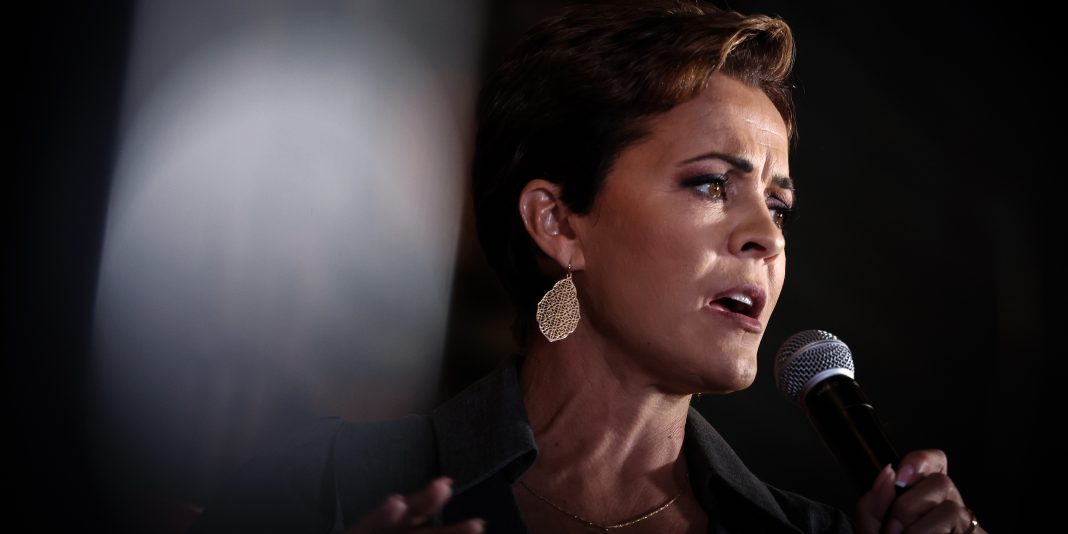Introduction:
In a surprising turn of events, a Democratic Party-aligned political advertising boutique called Three Point Media has produced both pro and anti-Robert F. Kennedy Jr. ads. This raises the question of why a firm that claims to support Democratic officeholders and progressive causes would spend resources on videos that both help and hurt the Kennedy campaign. The answer may lie in the strategic perspective of major parties and their willingness to leverage independent and third-party candidates to achieve their goals. This article explores the motivations behind Three Point Media’s actions and sheds light on the broader strategies employed by Democrats and Republicans when dealing with potential spoiler candidates.
The Role of Third Parties in American Politics:
According to political scientist Bernard Tamas, major parties have a long history of using independents and third-party candidates to their advantage. From a strategic perspective, the ends often justify the means, and parties are not overly concerned about how they win elections. Republicans, in particular, have experience boosting non-GOP candidates to siphon votes away from Democrats. For example, GOP-aligned lawyers recently attempted to get Cornel West on the ballot in Arizona, and in 2004, Michigan Republicans helped Ralph Nader qualify. However, Democrats tend to view most third parties as threats and have focused on blocking potential challengers from getting on the ballot.
Democrats’ Approach to Potential Spoiler Candidates:
Recent challenges to Kennedy’s ballot access in multiple states, including battlegrounds like North Carolina and Nevada, highlight the Democratic Party’s efforts to prevent candidates who could pose a threat from running. The DNC also attempted, unsuccessfully, to keep Jill Stein off the Wisconsin ballot. However, the Three Point videos suggest that some Democrats were open to different strategies regarding Kennedy. One ad praised him for leaving the Democratic Party to stand with law enforcement, potentially appealing to conservatives. Another ad portrayed RFK Jr. as a dangerous radical, aiming to attract less-conservative voters to the Democratic ticket. This dual approach reflects the party’s desire to keep their options open and adapt to changing circumstances.
Preparing for Different Scenarios:
Given the rapidly changing circumstances and Kennedy’s presence on the ballot in many states, it is likely that the Democratic Party decided to prepare for both scenarios: Kennedy helping Kamala Harris more or hurting Donald Trump more. The decision to produce both pro and anti-Kennedy ads allowed the party to wait for polling results and circumstances to determine which strategy made more sense. Three Point Media even created two “in his own words” videos about Kennedy, one positive and one negative, with similar scripts and video montages. The final title cards of these videos, “Stand With Kennedy” and “Stand Against Robert F. Kennedy Jr.,” reflect the contrasting tones and messages.
The Decline of Kennedy’s Prospects:
Kennedy’s prospects as an independent candidate initially seemed promising, with some polls showing him in double digits. However, his chances declined over the summer, particularly after Kamala Harris became the Democratic nominee. When Kennedy withdrew from the race and endorsed Trump, he believed that continuing to run would hurt Trump’s chances and benefit Harris. The pro-Kennedy ads were paid for by “Civic Truth Action,” a super PAC with ties to Democrats, including its treasurer, Chris Koob, who has worked for the Obama administration, Democratic candidates, and the DNC.
The Enigma of Citizens For Truth:
Interestingly, Three Point’s attack ads against RFK Jr. were paid for by a different entity called “Citizens For Truth.” However, no active committee with this name could be found, raising questions about its true identity. It remains unclear whether Citizens For Truth is an alias for Civic Truth Action, and neither Koob nor Three Point provided answers to this query.
Conclusion:
The production of both pro and anti-RFK Jr. ads by a Democratic Party-aligned political shop like Three Point Media reveals the complex strategies employed by major parties when dealing with potential spoiler candidates. While Republicans have a history of boosting non-GOP candidates, Democrats tend to view most third parties as threats and focus on blocking their access to the ballot. However, the Kennedy campaign presented a unique opportunity for Democrats to explore different messaging strategies. By producing videos that both praised and criticized Kennedy, the party aimed to adapt to changing circumstances and maximize their chances of success. The involvement of entities like “Civic Truth Action” and “Citizens For Truth” adds another layer of intrigue to this story, highlighting the intricacies of political advertising and the challenges of discerning true motives in the world of campaign messaging.


